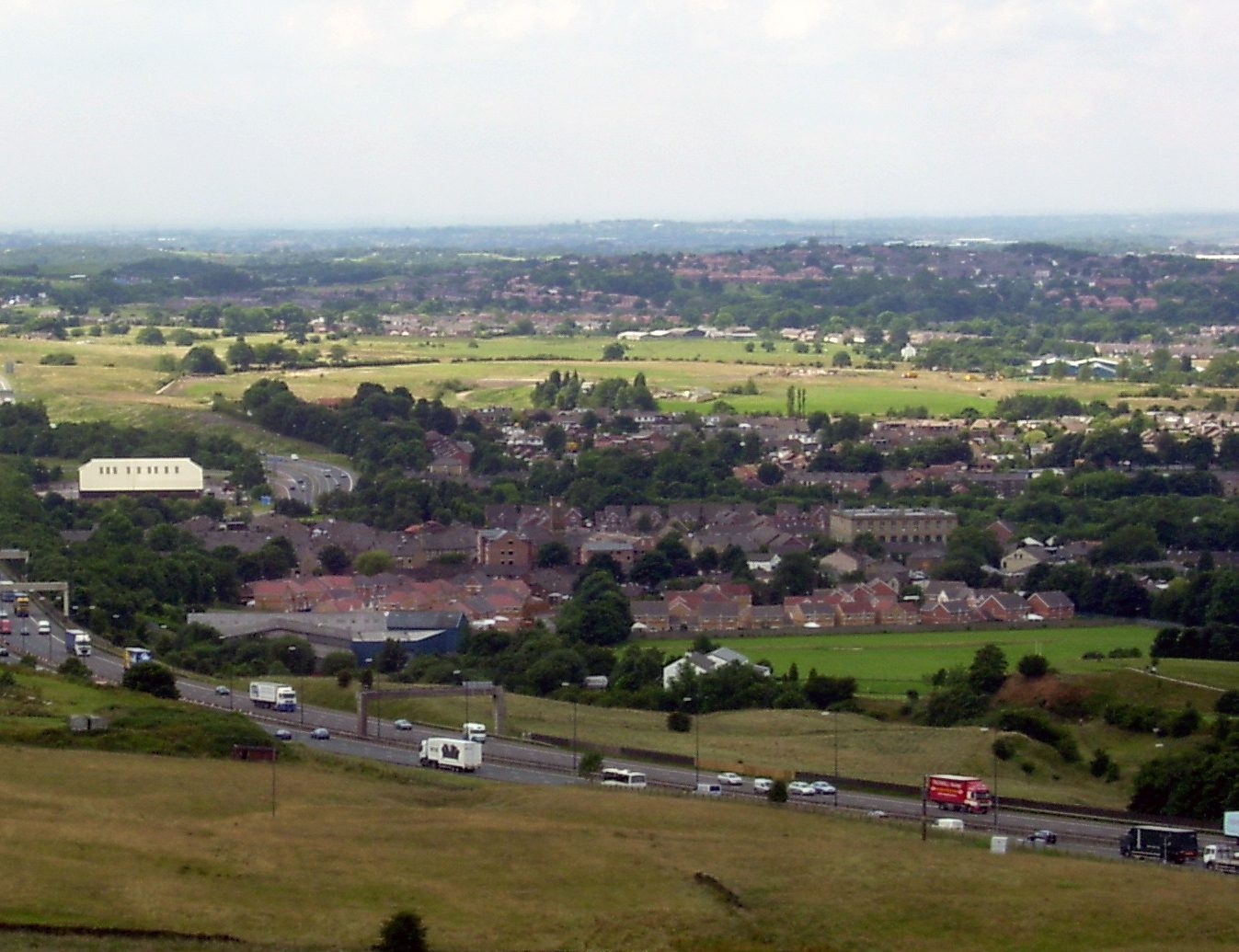SimplyFixIt, is one of the UK's top independent iPad repair specialists. Our head office is in Edinburgh, but we fix iPads for people all over the country, including in Milnrow. No matter your location, we can fix your iPad!
Why trust us with your iPad repair? Our Apple Certified Technicians deliver unrivalled quality, outshining local independent computer shops. With an impressive track record in the Milnrow area, we invite you to experience our top-tier service for all your iPad needs, especially iPad screen repairs.
Fast Repairs
Quality Components
Spread the cost
All Repairs Guaranteed
We understand the importance of your iPad, so we aim to return it within 48 hours of receiving it. At SimplyFixIt, we believe in precision over speed, but rest assured, your iPad will be in good hands. Once the repair, including any necessary screen repairs, is complete, we'll promptly notify you and arrange express delivery back to Milnrow, either your home or work.
Happy SimplyFixIt Customers near Milnrow
We do more than just fix iPads; our services include repairs for MacBooks, iPhones, and Windows laptops. If you're in the Milnrow vicinity, you're likely close to someone that we've helped in the recent past. Below is a map of the people1 near Milnrow who have used SimplyFixIt because of our fast, efficient, and high-quality repair service.
Ready for a seamless iPad repair experience? Choose your iPad below and follow the instructions. With SimplyFixIt, you're choosing reliability, quality, and peace of mind.
iPad Repairs for Schools in Milnrow 🎓
Do you have iPads in your school or college that are broken? We can help. We have partnered with hundreds of schools across the UK , including several near you - e.g. Moor End Academy & Shoxitech Ltd, to provide an easy & low-cost way to get iPads back into the classroom — where they belong. There's no need to pay for insurance, or pay Apple's exorbitant prices for iPad repairs. We know that you have enough to do as a teacher, so we look after collecting, fixing and returning the iPads from your school. Click here to visit the iPad Repair site for schools, where you can download our brochure or get more information.
Map of customers near you
1Please note that for data protection reasons, we've applied "fuzziness" to the location markers. Though not exact, these markers represent the general areas of our satisfied customers.

Not sure what model of iPad you have?
Enter your iPad's serial number below, or read our guide at what model iPad do I have?.
Check your Serial Number for free.
Choose an iPad
About Milnrow
Milnrow is a town within the Metropolitan Borough of Rochdale, in Greater Manchester, England. It lies on the River Beal at the foothills of the South Pennines, and forms a continuous urban area with Rochdale. It is 2 miles (3.2 km) east of Rochdale town centre, 10 miles (16.1 km) north-northeast of Manchester, and spans from Windy Hill in the east to the Rochdale Canal in the west. Milnrow is adjacent to junction 21 of the M62 motorway, and includes the village of Newhey, and hamlets at Tunshill and Ogden.
Historically in Lancashire, Milnrow during the Middle Ages was one of several hamlets in the township of Butterworth and parish of Rochdale. The settlement was named by the Anglo-Saxons, but the Norman conquest of England resulted in its ownership by minor Norman families, such as the Schofields and Cleggs. In the 15th century, their descendants successfully agitated for a chapel of ease by the banks of the River Beal, triggering its development as the main settlement in Butterworth. Milnrow was primarily used for marginal hill farming during the Middle Ages, and its population did not increase much until the dawn of the woollen trade in the 17th century.
With the development of packhorse routes to emerging woollen markets in Yorkshire, the inhabitants of Milnrow adopted the domestic system, supplementing their income by fellmongering and producing flannel in their weavers' cottages. Coal mining and metalworking also flourished in the Early Modern period, and the farmers, colliers and weavers formed a "close-knit population of independent-minded workers". The hamlets of Butterworth coalesced around the commercial and ecclesiastical centre in Milnrow as demand for the area's flannel grew. In the 19th century, the Industrial Revolution supplanted domestic woollen industries and converted the area into a mill town, with cotton spinning as the principal industry. Mass-produced textile goods from Milnrow's cotton mills were exported globally with the arrival of the railway in 1863. The Milnrow Urban District was established in 1894 and was governed by the district council until its abolition in 1974.
Deindustrialisation and suburbanisation occurred throughout the 20th century resulting in the loss of coal mining and cotton spinning. Milnrow was merged in to the Metropolitan Borough of Rochdale in 1974, and has since become suburban to Rochdale. However, the area has retained "a distinct and separate character", and has been described as "the centre of the south Lancashire dialect". John Collier (who wrote under the pseudonym of Tim Bobbin) is acclaimed as an 18th-century caricaturist and satirical poet who produced Lancashire-dialect works during his time as Milnrow's schoolmaster. Rochdale-born poet Edwin Waugh was influenced by Collier's work, and wrote an extensive account of Milnrow during the mid-19th century in a tribute to him. Milnrow has continued to grow in the 21st century, spurred by its connectivity to road, rail and motorway networks. Surviving weavers' cottages are among Milnrow's listed buildings, while the Ellenroad Steam Museum operates as an industrial heritage centre.